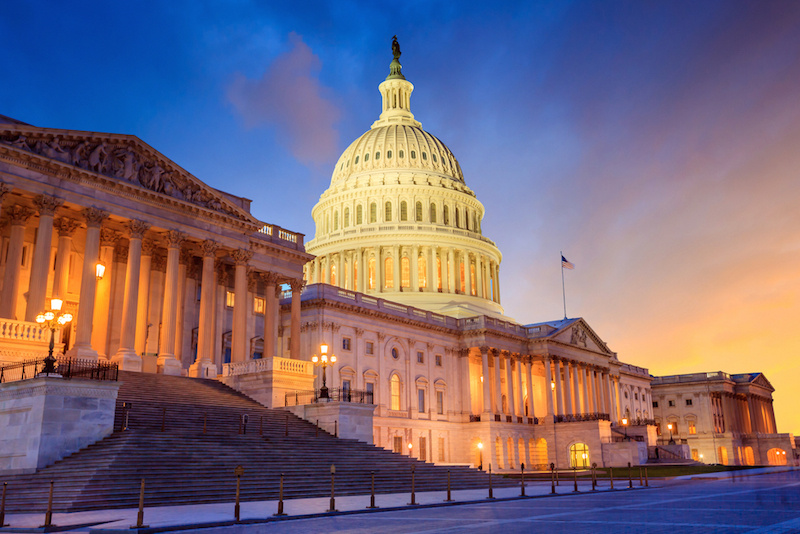New Policies Would Threaten Autism Research, Experts Say

The falsehood that vaccines cause autism has regained traction since the election of President Donald Trump, and this misinformation may leave Americans blind to a real risk: a loss of health and learning services for people with autism that will result from the coming changes in health care and cuts to research funding, researchers say.
Vaccines do not cause autism. But Trump's "apparent openness to a long-debunked link between vaccines and autism risks" may cause advocates for services for people with autism and policymakers to focus on defending well-established scientific facts instead of fighting the potential rollback of protections for people with autism, the researchers wrote today (March 8) in an editorial in The New England Journal of Medicine.
These threatened protections include the Affordable Care Act's (aka Obamacare or ACA) key provision that health insurance companies cannot deny coverage because of a pre-existing condition, the researchers said. Also, the Individuals with Disabilities Education Act (IDEA), which predates the ACA, guarantees appropriate education for all children with disabilities. [Beyond Vaccines: 5 Things that Might Really Cause Autism]
Both acts may be on the chopping block, said Colleen Barry, a professor and chair of health policy and management at the Johns Hopkins Bloomberg School of Public Health. Barry co-authored the editorial with David Mandell, a professor and director of the Center for Mental Health Policy and Services Research at the University of Pennsylvania.
"We have no idea what will come out of Congress," Barry told Live Science. But there is a "real risk" that the changes could reverse gains made in autism care over the past two decades, she said.
The Republican-led Congress and the president have pledged to repeal and replace the ACA. Among the ideas favored by many Republicans in Congress is a plan to open up health insurance markets across state lines, the researchers said.
"If interstate insurance purchasing became possible, out-of-state insurance companies would not have to comply with the autism-mandate requirements in consumers' state of residence," Barry and Mandell wrote. "[S]uch freedom from requirements might easily precipitate a 'race to the bottom,' in which state legislators would repeal autism mandates (and other types of insurance mandates and consumer protections) to make in-state health insurance products price-competitive. As a result, gains achieved to date in access to autism-specific services could be reversed."
Sign up for the Live Science daily newsletter now
Get the world’s most fascinating discoveries delivered straight to your inbox.
The ACA also requires marketplace health plans to cover 10 essential health benefit categories, including services important to people with autism and other disabilities. These services include therapies aimed at helping people with autism improve their skills of daily living, speech and language therapy, and mental health treatment.
Concerning the IDEA, Barry said that Secretary of Education Betsy DeVos and Attorney General Jeff Sessions have publicly questioned the value of the act's protections. DeVos has suggested that states should be able to decide whether to enforce the IDEA, Barry added. [6 Politicians Who Got the Science Wrong]
As for government-sponsored research funding, Trump has proposed cutting $54 billion from some federal agencies, such as those that fund scientific research.
Autism is a developmental disability that can cause significant social, communication and behavioral challenges. The number of children diagnosed with autism has risen dramatically in recently decades, from 1 in 2,000 people in 1970 to 1 in 150 people today, according to the Centers for Disease Control and Prevention.
Yet scientists are not sure whether the rise is due to better diagnosis and the broadening of the clinical definition of autism, or an actual increase in the true prevalence. Nor do scientists understand what causes autism.
This week, researchers at the University of North Carolina School of Medicine reported that they found that infants as young as 6 months old, who were later diagnosed with autism at age 2, had a substantially greater amount of cerebrospinal fluid — the clear liquid that cushions the brain within the skull — compared with the 6-month-olds who did not go on to develop autism. This is the latest in a series of studies demonstrating how some infants are born with symptoms linked to autism long before they receive vaccines.
Barry and Mandell are worried because Trump has rehashed the discredited link between vaccines and autism, as recently as January 2017.
"The risk of getting drawn into an outdated debate about vaccines and autism is that advocates and policymakers will spend their time and resources fighting on that flank and could miss the window to respond on proposed cuts to critical services for those with autism coming from the other direction," Barry said.
Those who care about preserving and expanding services for people with autism need to pay attention to the conversations in Washington around the ACA repeal and threats to IDEA to make sure important protections and guarantees are not lost, Barry said.
Follow Christopher Wanjek @wanjek for daily tweets on health and science with a humorous edge. Wanjek is the author of "Food at Work" and "Bad Medicine." His column, Bad Medicine, appears regularly on Live Science.

Christopher Wanjek is a Live Science contributor and a health and science writer. He is the author of three science books: Spacefarers (2020), Food at Work (2005) and Bad Medicine (2003). His "Food at Work" book and project, concerning workers' health, safety and productivity, was commissioned by the U.N.'s International Labor Organization. For Live Science, Christopher covers public health, nutrition and biology, and he has written extensively for The Washington Post and Sky & Telescope among others, as well as for the NASA Goddard Space Flight Center, where he was a senior writer. Christopher holds a Master of Health degree from Harvard School of Public Health and a degree in journalism from Temple University.










